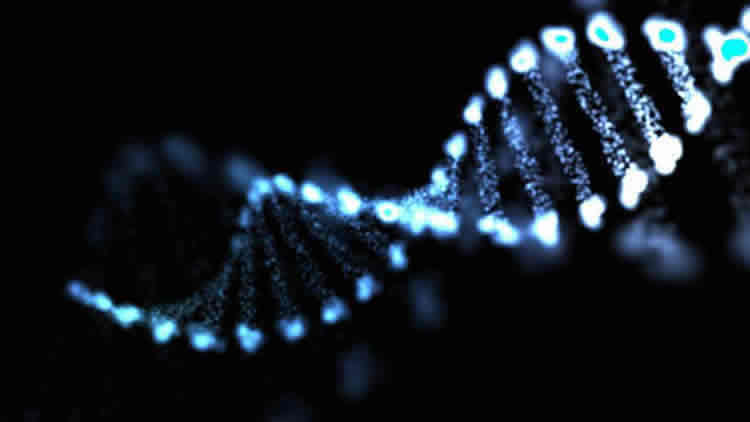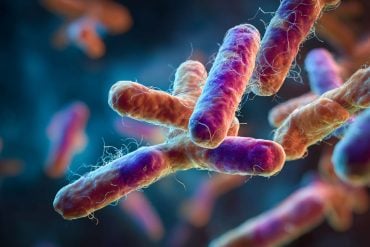Summary: Researchers have identified over a dozen genetic variations they believe are associated with a person’s cognitive ability.
Source: Northwell Health.
Investigators at The Feinstein Institute for Medical Research discovered dozens of new genetic variations associated with a person’s general cognitive ability. The findings, which were published online today in Cell Reports, have the potential to help researchers develop more targeted treatment for cognitive and memory disorders.
“For the first time, we were able to use genetic information to point us towards specific drugs that might aid in cognitive disorders of the brain, including Alzheimer’s disease, schizophrenia and attention deficit hyperactivity disorder,” said Todd Lencz, PhD, senior author of the study and professor at the Feinstein Institute and the Donald and Barbara Zucker School of Medicine at Hofstra/Northwell.
In the largest peer-reviewed study of its kind, an international team of 65 scientists, led by Dr. Lencz, studied the genomes of more than 100,000 individuals who had their brain function measured by neuropsychological tests. These data were then combined with genomes from 300,000 people measured for the highest level of education achieved, which serves as an estimate for cognitive ability, or how the brain acquires knowledge.

While profiling cognitive ability, researchers also discovered a genetic overlap with longevity. They found when examining an individual’s family that a genetic predisposition towards higher cognitive ability was associated with longer lifespan. A new genetic overlap between cognitive ability and risk for autoimmune disease was also identified.
This study appears less than a year after Dr. Lencz and his colleagues published a similar, smaller study that was only able to identify a few key genes associated with cognitive ability.
“The field of genomics is growing by leaps and bounds,” Dr. Lencz said. “Because the number of genes we can discover is a direct function of the sample size available, further research with additional samples is likely to provide even more insight into how our genes play a role in cognitive ability.”
Source: Heather Ball – Northwell Health
Publisher: Organized by NeuroscienceNews.com.
Image Source: NeuroscienceNews.com image is credited to Narayanan Lab, University of Iowa.
Original Research: Full open access research for “Large-Scale Cognitive GWAS Meta-Analysis Reveals Tissue-Specific Neural Expression and Potential Nootropic Drug Targets” by Max Lam, Joey W. Trampush, Jin Yu, Emma Knowles, Gail Davies, David C. Liewald, John M. Starr, Srdjan Djurovic, Ingrid Melle, Kjetil Sundet, Andrea Christoforou, Ivar Reinvang, Pamela DeRosse, Astri J. Lundervold, Vidar M. Steen, Thomas Espeseth, Katri Räikkönen, Elisabeth Widen, Aarno Palotie, Johan G. Eriksson, Ina Giegling, Bettina Konte, Panos Roussos, Stella Giakoumaki, Katherine E. Burdick, Antony Payton, William Ollier, Ornit Chiba-Falek, Deborah K. Attix, Anna C. Need, Elizabeth T. Cirulli, Aristotle N. Voineskos, Nikos C. Stefanis, Dimitrios Avramopoulos, Alex Hatzimanolis, Dan E. Arking, Nikolaos Smyrnis, Robert M. Bilder, Nelson A. Freimer, Tyrone D. Cannon, Edythe London, Russell A. Poldrack, Fred W. Sabb, Eliza Congdon, Emily Drabant Conley, Matthew A. Scult, Dwight Dickinson, Richard E. Straub, Gary Donohoe, Derek Morris, Aiden Corvin, Michael Gill, Ahmad R. Hariri, Daniel R. Weinberger, Neil Pendleton, Panos Bitsios, Dan Rujescu, Jari Lahti, Stephanie Le Hellard, Matthew C. Keller, Ole A. Andreassen, Ian J. Deary, David C. Glahn, Anil K. Malhotra, and Todd Lencz in Cell Reports. Published online November 28 2017 doi:10.1016/j.celrep.2017.11.028
[cbtabs][cbtab title=”MLA”]Northwell Health “New Genes Associated With Cognitive Ability Identified.” NeuroscienceNews. NeuroscienceNews, 28 November 2017.
<https://neurosciencenews.com/genetics-cognition-8048/>.[/cbtab][cbtab title=”APA”]Northwell Health (2017, November 28). New Genes Associated With Cognitive Ability Identified. NeuroscienceNews. Retrieved November 28, 2017 from https://neurosciencenews.com/genetics-cognition-8048/[/cbtab][cbtab title=”Chicago”]Northwell Health “New Genes Associated With Cognitive Ability Identified.” https://neurosciencenews.com/genetics-cognition-8048/ (accessed November 28, 2017).[/cbtab][/cbtabs]
Abstract
Large-Scale Cognitive GWAS Meta-Analysis Reveals Tissue-Specific Neural Expression and Potential Nootropic Drug Targets
Highlights
•Large-scale GWAS of cognitive performance, combined with GWAS of educational attainment
•70 independent genomic loci associated with individual differences in cognition
•Implicated genes suggest potential treatment targets for cognitive enhancement
•Genetic overlap between cognitive ability and multiple health-related phenotypes
Summary
Here, we present a large (n = 107,207) genome-wide association study (GWAS) of general cognitive ability (“g”), further enhanced by combining results with a large-scale GWAS of educational attainment. We identified 70 independent genomic loci associated with general cognitive ability. Results showed significant enrichment for genes causing Mendelian disorders with an intellectual disability phenotype. Competitive pathway analysis implicated the biological processes of neurogenesis and synaptic regulation, as well as the gene targets of two pharmacologic agents: cinnarizine, a T-type calcium channel blocker, and LY97241, a potassium channel inhibitor. Transcriptome-wide and epigenome-wide analysis revealed that the implicated loci were enriched for genes expressed across all brain regions (most strongly in the cerebellum). Enrichment was exclusive to genes expressed in neurons but not oligodendrocytes or astrocytes. Finally, we report genetic correlations between cognitive ability and disparate phenotypes including psychiatric disorders, several autoimmune disorders, longevity, and maternal age at first birth.
“Large-Scale Cognitive GWAS Meta-Analysis Reveals Tissue-Specific Neural Expression and Potential Nootropic Drug Targets” by Max Lam, Joey W. Trampush, Jin Yu, Emma Knowles, Gail Davies, David C. Liewald, John M. Starr, Srdjan Djurovic, Ingrid Melle, Kjetil Sundet, Andrea Christoforou, Ivar Reinvang, Pamela DeRosse, Astri J. Lundervold, Vidar M. Steen, Thomas Espeseth, Katri Räikkönen, Elisabeth Widen, Aarno Palotie, Johan G. Eriksson, Ina Giegling, Bettina Konte, Panos Roussos, Stella Giakoumaki, Katherine E. Burdick, Antony Payton, William Ollier, Ornit Chiba-Falek, Deborah K. Attix, Anna C. Need, Elizabeth T. Cirulli, Aristotle N. Voineskos, Nikos C. Stefanis, Dimitrios Avramopoulos, Alex Hatzimanolis, Dan E. Arking, Nikolaos Smyrnis, Robert M. Bilder, Nelson A. Freimer, Tyrone D. Cannon, Edythe London, Russell A. Poldrack, Fred W. Sabb, Eliza Congdon, Emily Drabant Conley, Matthew A. Scult, Dwight Dickinson, Richard E. Straub, Gary Donohoe, Derek Morris, Aiden Corvin, Michael Gill, Ahmad R. Hariri, Daniel R. Weinberger, Neil Pendleton, Panos Bitsios, Dan Rujescu, Jari Lahti, Stephanie Le Hellard, Matthew C. Keller, Ole A. Andreassen, Ian J. Deary, David C. Glahn, Anil K. Malhotra, and Todd Lencz in Cell Reports. Published online November 28 2017 doi:10.1016/j.celrep.2017.11.028






